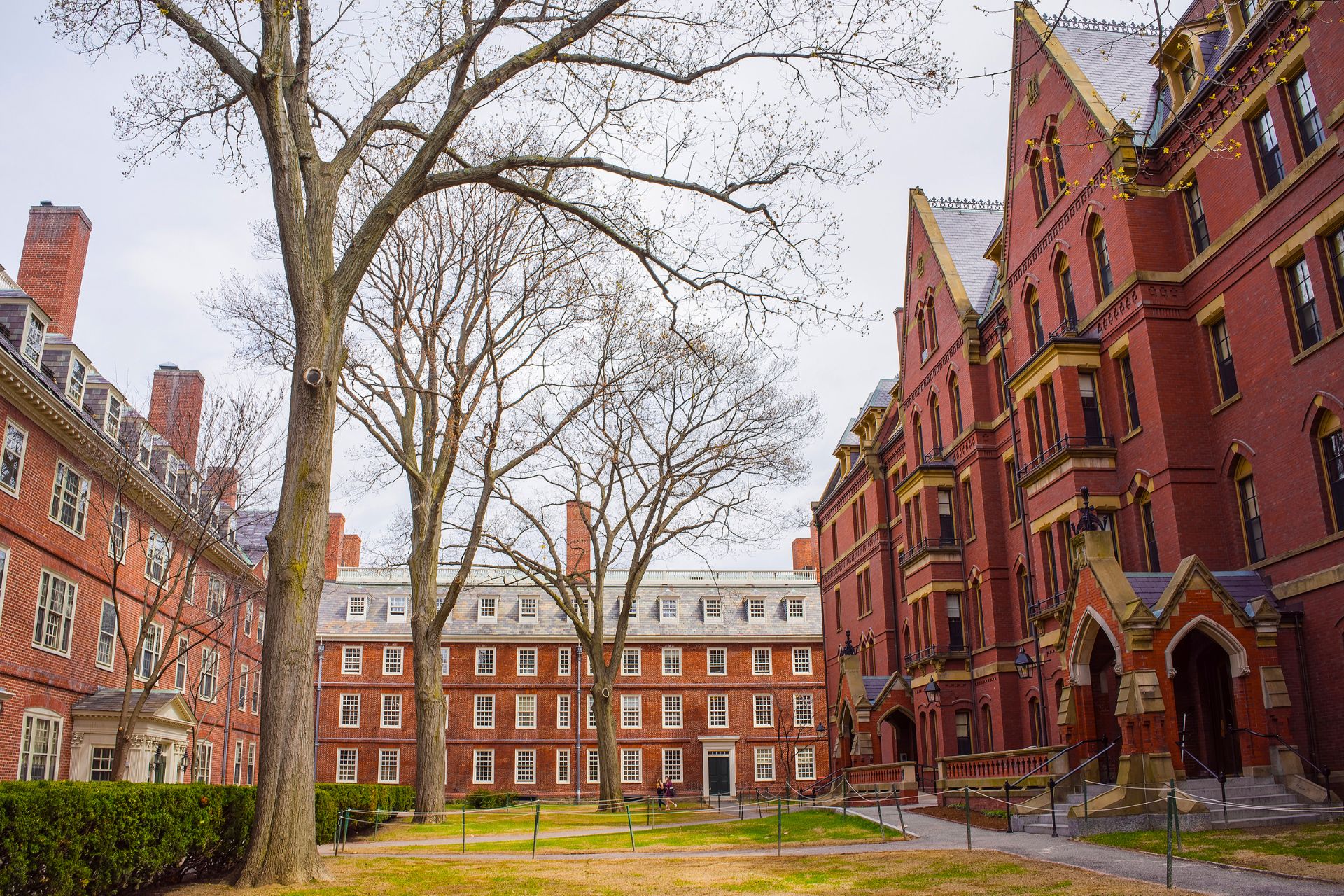12 Types of Universities in USA: A Guide for Indian Students
Navigating the American Education Landscape: A Comprehensive Guide to Universities
The United States is the #1 destination for students looking to study abroad. With hundreds of universities, cutting edge education, thousands of job opportunities and an economy that rewards meritorious students it’s no wonder that so many students flock to the US. One of the key differences between Indian and American universities is that the US government does not regulate higher education – meaning universities have more freedom and flexibility in creating and delivering programs.
As an aspiring international student in the US, the most critical task before you is creating a shortlist of universities. Universities in the US offer Associate, Bachelors, Masters, Doctoral and Post-Doctoral and Professional degree programs [link to new blog about course types]. On the basis of your educational goals, you must choose from the following types of universities in the US and then begin your admissions process.
Table of Contents
- Public or State Universities
- Private Universities
- Ivy League Universities
- Public Ivy Universities
- The Liberal Arts institutions
- Specialist Institutions
- Land Grant Universities
- The Association of American Universities (AAU)
- Women’s Colleges
- Distance Education
- US Universities Abroad
- For-Profit Universities
Public or State Universities
Public Universities, also known as State Universities, are Institutions that are financed predominantly by the state government and sometimes supported by federal grants. These Universities are often grouped into a State University System.

Foreign or out-of-state students pay a fee which is usually higher than that paid by in-state residents. For example, if a student is from Washington, the student will pay a lower fee at a public university in Washington, compared to a student from San Francisco. International students (for example, students from India) pay even more to study in that same University.
However, educational costs at state-funded colleges are for the most part, less than private colleges. Public universities are substantial in size and have a large number of students.
Below are few public colleges in the United States
- University of California, Berkeley (UC Berkeley)
- University of South Carolina, Columbia (Carolina or USC)
- Arizona State University, Temple (ASU)
- Pennsylvania State University, University Park (Penn State or PSU)
- Ohio State University, Columbus (OSU)
Private Universities
Private Universities are supported by tuition fees from donors, private donations, and Federal research grants. They usually have a smaller student body, close-knit campus community and are more expensive to attend. However, private colleges generally have better campus facilities on offer (you get what you pay for!).
Religiously affiliated universities also come under private universities. Though most of these universities accept students of all religions, there are a few institutions that prefer students of similar religious beliefs.
When it comes to international students, Private Universities provide more funding, mainly need-based scholarships.
Below are a few private colleges in the United States –
- Harvard University, Massachusetts
- Stanford University, California
- Yale University, Connecticut
- Brown University, Rhode Island
- Columbia University, New York
Ivy League Universities
Many students are amazed to find that the Ivy League is actually a sports conference of eight private universities in the North Eastern United States. As their sports team kept getting popular and attracted more funds, the student admissions became more rigorous and competitive. With numerous institutions established in provincial times, the Ivy League incorporates a portion of the most seasoned and advanced education foundations in the US.

The Ivy League Universities are some of the most prestigious and aggressive Universities towards confirmations (normal acknowledgment rates are around 10%). These universities have a history of producing high achievers and many Nobel prize winners are part of their alumni.
Ivy League Colleges include
- Brown University, Rhode Island (Brown)
- Columbia University, New York (Columbia)
- Cornell University, New York (Cornell)
- Dartmouth College, New Hampshire (Dartmouth)
- Harvard University, Massachusetts (Harvard)
- Princeton University, New Jersey (Princeton)
- University of Pennsylvania, Pennsylvania (UPenn)
- Yale University, Connecticut (Yale)
Public Ivy Universities
It is a term coined in the 1980s to depict a group of public or state-funded colleges in the US. Though originally there were 8 Universities which came to be known as Public Ivies, today there are over 30 universities. These universities have earned a reputation in the minds of students for offering equally rigorous and competitive education as the Ivy League. The only difference is that these universities provide the same quality of education at more affordable costs.
The first eight Public Ivies include –
- College of William & Mary, Virginia
- Miami University, Ohio
- University of California, California
- University of Michigan, Ann Arbor
- University of North Carolina at Chapel Hill, Carolina
- University of Texas at Austin, Texas
- University of Vermont, Vermont
- University of Virginia, Virginia
- University of Illinois at Urbana Champaign
The Liberal Arts institutions
The Liberal Arts Institutions mainly focus on undergraduate students, providing them with all the resources and opportunities with an emphasis on both Liberal Arts and Sciences. Students start their degree study by taking classes in a wide assortment of courses. For example, courses like expressions of the human experience, humanities, dialects, and the social sciences, before practicing (majoring) in a different field related to Science and Technology.
The primary intention of the Liberal Arts Institutions is to groom a well-rounded student with broad skills in both arts and sciences by imparting general knowledge and intellectual capabilities. The faculty in these institutions is primarily focused on teaching undergraduates instead of being involved in their own research. These universities also boast of a healthy student to faculty ratio.
Specialist Institutions
These are colleges and organizations that provide expertise in specified degrees pertaining to a specific field. Some examples are universities like MIT and CalTech concentrate on scientific and technological research; Juilliard , a center for performing arts; Berklee, a university known for expertise in music; and SCAD, focuses on visual and applied arts. The requirements to enroll in these specialist institutions are generally different from other universities.
Land Grant Universities
These large, public-funded universities are well-known for their programs. The land-grant universities are designated by a state to receive the benefits of the Morrill Acts of 1862 and 1890. It basically means, these universities are granted federal lands as per the Morrill Acts, for them to sell, to raise funds, to establish and endow “land-grant” colleges.
The land-grant program was started in pursuit of having universities specific to Agriculture, Science, Military Science, and Engineering as a response to the Industrial Revolution.
Today most land-grant colleges have become public universities, offering a wide range of educational opportunities. That being said, some Land-Grant universities are private universities like MIT and Cornell.
The Association of American Universities (AAU)
It is a membership association, involving 62 leading research colleges from the US and Canada (60 universities from USA and 2 from Canada). These AAU member universities, together shape policies and promote best practices for higher education and strengthen the contributions of academic research, scholarships, and education.
Women’s Colleges
Women Colleges are colleges with a student body comprising of mostly or completely female students. However, most women colleges provide students with an option to register with nearby co-educational colleges and attend classes in both the colleges.
The main intention of such colleges is to provide a supportive and empowering environment for women. Alumnae of women colleges include many national and global leaders in science, politics and business fields.
Distance Education
Distance education permits both students and professionals to gain a degree or certificate without being physically present at the university. Qualification offerings include high-school diplomas, undergraduate and postgraduate degrees, and certificate programs.
A few programs have a set due date for completion, while others permit students to work at their own particular pace under specific rules.
Many US universities have created a competitive but flexible model to cater to a wide number of students through an online medium. Some of the best US universities that provide Distance Education courses are
US Universities Abroad
It is possible to attain an American University education and degree following a US curriculum at an institution located outside the US. Some US universities are beginning to open overseas campuses, and other foreign institutions and universities offering US-style degrees. These types of Universities which are not located in the US, but follow US University rules and curriculum are known as US Universities Abroad. Below are some examples of such Universities
- American University in Dubai, UAE (AUD)
- Abu Dhabi University, UAE
- Hult International Business School, Dubai & London
For-Profit Universities
Almost all the universities in the USA are either public or non-profit universities. However, the last few decades have seen a rise in the number of universities working on the sole purpose of generating profits. These universities are known as For-Profit Universities. These universities function as business ventures with an aim to generate profits for its owners and shareholders.
Although these universities play a significant role in the US higher education system, many critics have raised their voice on the quality of education and return on investment from such universities.
Choosing the right type of universities can have a huge impact on the cost of your education, your job prospects and more. To help you make the right choice, Ubergrad allows you to browse and select from hundreds of universities in the US to shortlist and then apply to the universities best suited for you – all from your Ubergrad account.
Here’s looking to your success!
For all those SMART Ubergrads who would let the experts do what they do the best!
Ubergrad's Expert Counsellors shall help you choose your Best-Fit Universities based on your profile and guide you through your entire study abroad journey, thus making it a cake-walk for you.
- Profile Evaluation - suggest a customised & personalised “Best-Fit” University shortlist matching your profile (considering more than 42 parameters).
- SoPs, LoRs, Resumes - proofreading, sharing samples, etc.
- Information on Application Fee waivers, GRE / IELTS waivers, deadlines, etc.
- University Applications - help with documentation, application form filling, special requirements, etc.
- Tracking and follow-up with University Partners for Offer/Admit, I-20, CAS, COE, etc.
- Visa Process - help with documentation, application form filling, mock one-on-one sessions, etc.
- Education Loans - connect with our Loan partners and help you secure required financial resources.
Your 'Dedicated Counsellor' would help you in the entire process - from 'shortlisting' universities to finally 'enrolling' at your dream university (just a Phone call / WhatsApp / Email / SMS away).

